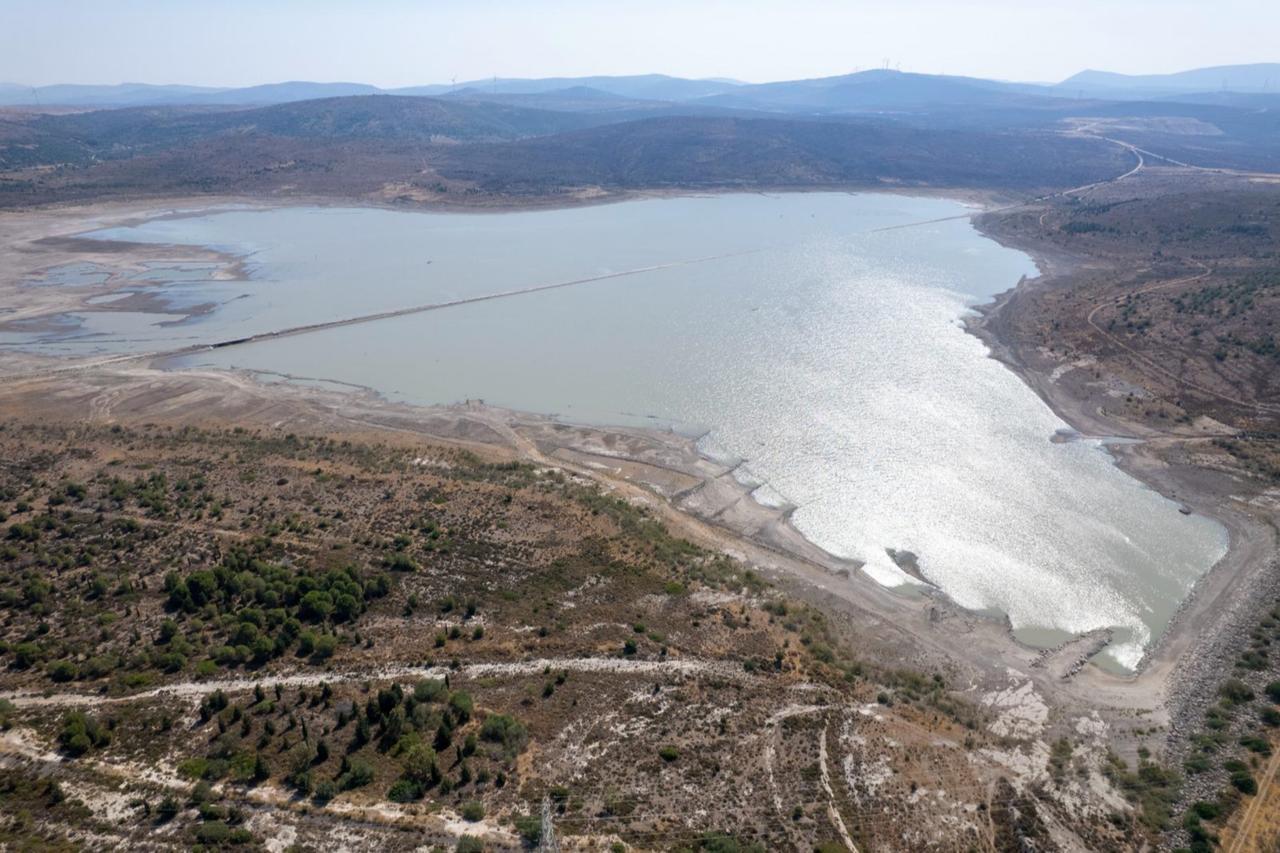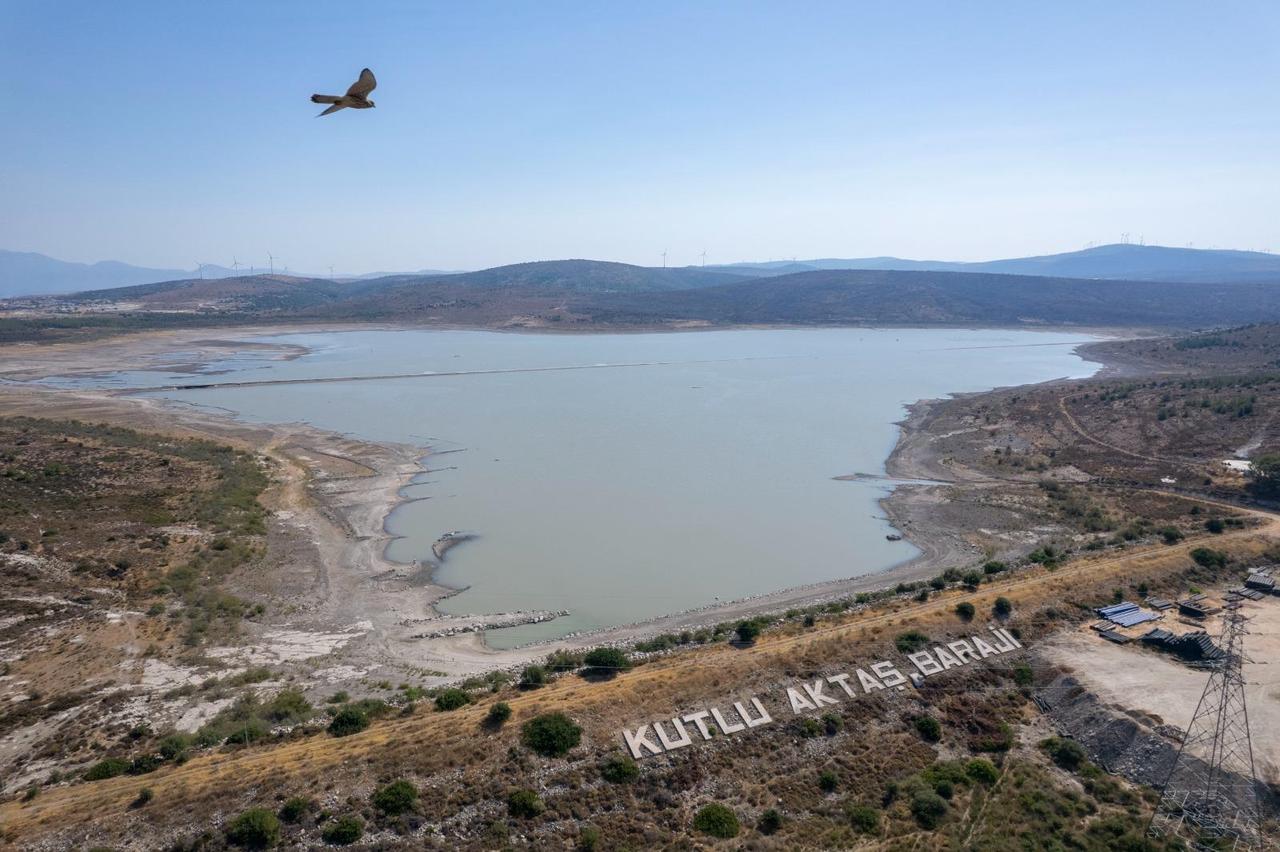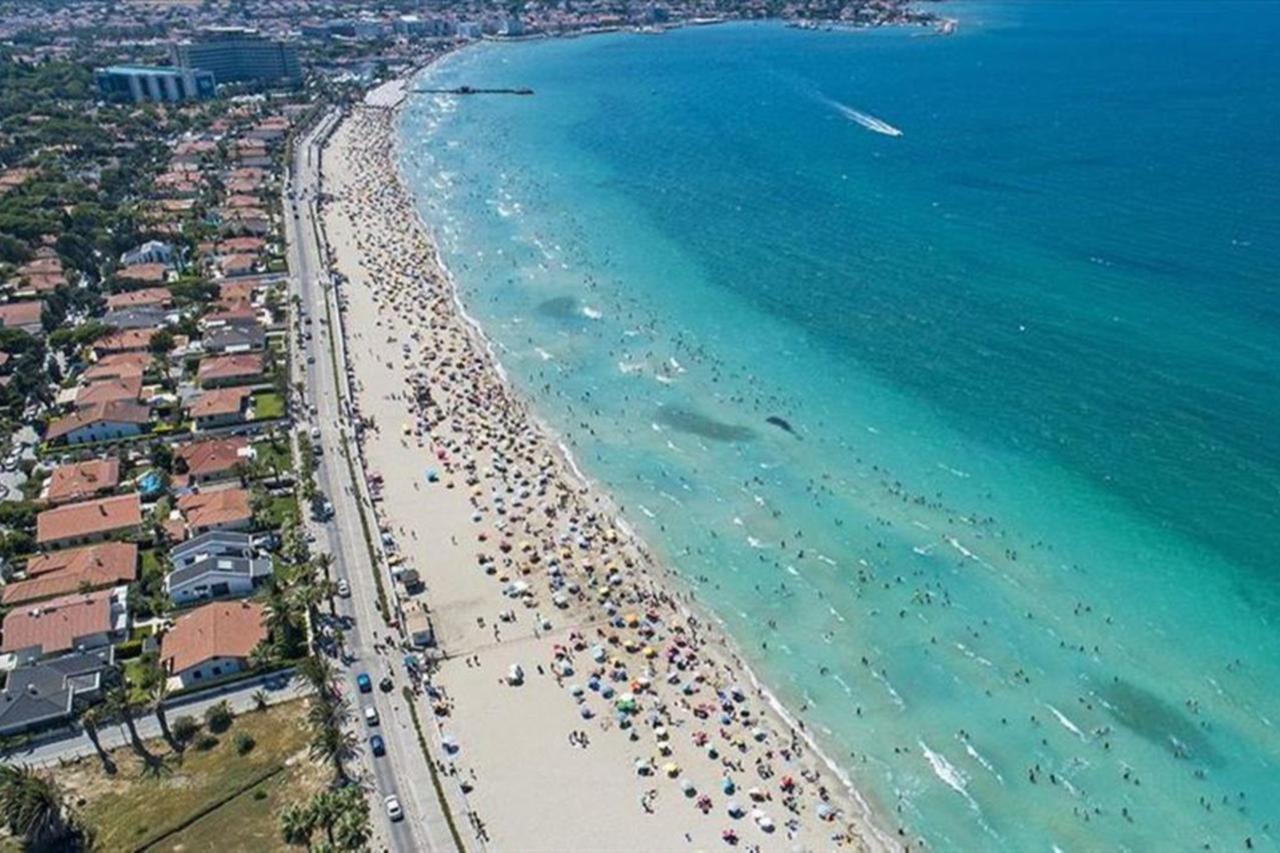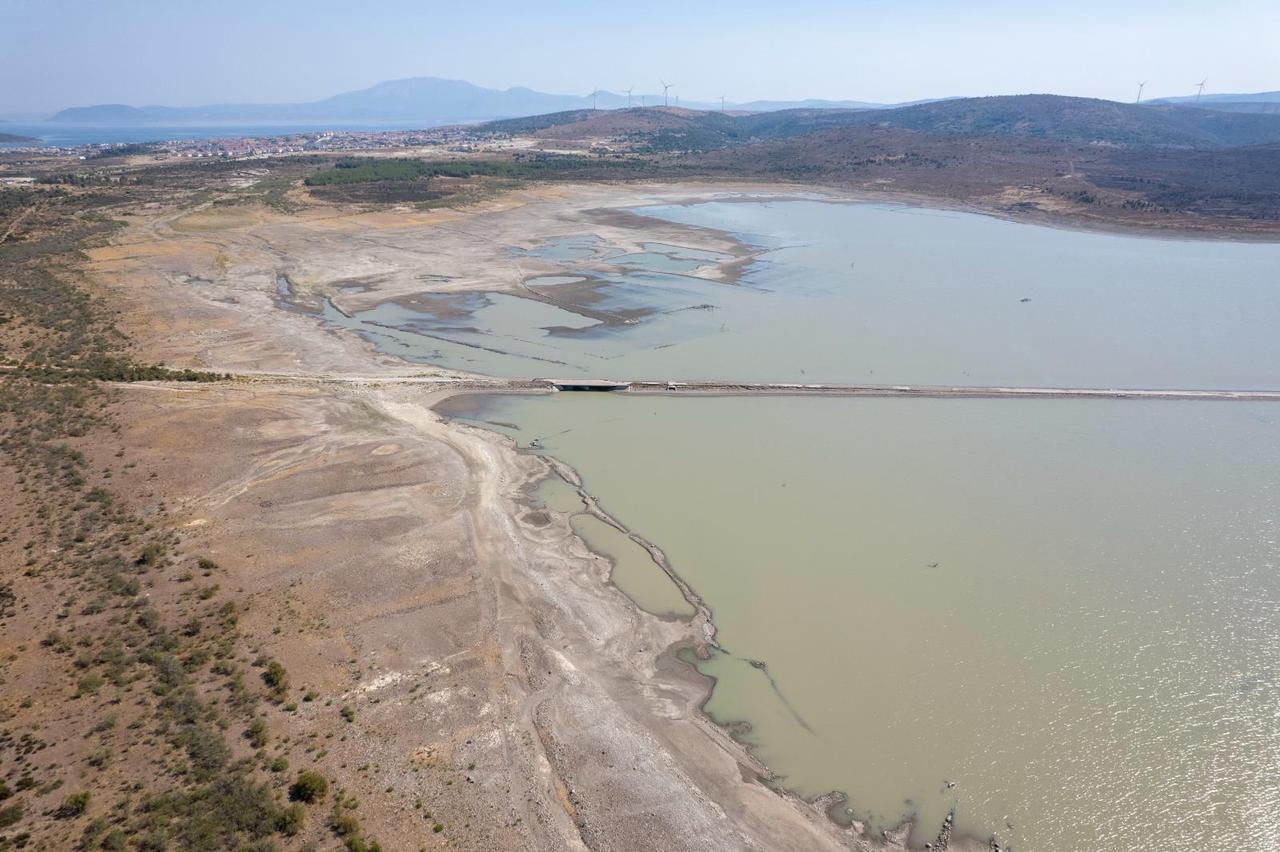
The popular Aegean resort town of Cesme will begin mandatory seven-hour nightly water cuts starting Friday as severe drought conditions push the region's water reserves to critical levels, but behavioral research suggests the restrictions themselves could paradoxically trigger increased water consumption through panic hoarding.
The Izmir Water and Sewerage Administration (IZSU) announced water service will be suspended daily from 11 p.m. to 6 a.m. throughout the district, citing a dramatic decline in local water sources that has left the main Alacati Kutlu Aktas Dam with less than 5% capacity.

The crisis is a part of broader water shortages across Türkiye's third-largest city. Data from IZSU shows the Gordes Dam, one of Izmir's key water sources, has virtually dried up with just 0.08% capacity remaining. The Tahtali Dam sits at a precarious 9.69% capacity.
"The Gordes Dam has dried up. If we lose Tahtali as well, Izmir will face serious problems with its drinking water supply," IZSU General Manager Gurkan Erdogan said.
Izmir's reservoir system currently holds 96.78 million cubic meters of water. Even the Guzelhisar Dam, the city's primary water source, has dropped to 59.15% capacity — down 17% from the same period last year. The Balcova Dam stands at 35.97% capacity, while the Urkmez Dam has fallen to 14.24%.

The water restrictions come as Cesme, known for its pristine beaches and summer tourism, experiences its peak season population surge. Officials cited the combination of prolonged drought, reduced rainfall and increased summer demand as factors pushing water resources beyond sustainable limits.
The Alacati Kutlu Aktas Dam, built between 1994-1997 specifically to supply Cesme's drinking water needs, now holds just days' worth of supply. The facility was designed to produce 3 million cubic meters annually, but current levels have fallen far below operational requirements. The dam's active reservoir capacity has plummeted to just 4.41%, compared to 24.89% during the same period last year.

International behavioral research suggests that announcing water restrictions could paradoxically increase consumption through panic hoarding, raising questions about the effectiveness of Cesme's approach and whether Turkish authorities have adequately prepared for potential behavioral backlash.
A 2024 study published in AQUA - Water Infrastructure, Ecosystems and Society found that "unreasonable drinking water hoarding, i.e., simultaneous withdrawal of water by a large number of customers, can influence the performance of water supply systems." The research revealed that up to 40% of households could simultaneously hoard water through bathtub filling without causing system performance drops — a threshold that could easily be exceeded in a tourist destination like Cesme where both residents and visitors might rush to stockpile water before the nightly cuts begin.
The Austrian research team's analysis becomes particularly relevant to Cesme's situation, as the study examined Alpine water systems serving seasonal populations similar to Türkiye's coastal resorts. The researchers warned that "decreasing performance (e.g., more friction losses and therefore a smaller outflow rate at faucets) can cause a negative feedback loop that might trigger further water hoarding behaviours."
For Cesme, this means that if too many households and hotels attempt to fill storage containers simultaneously before the 11 p.m. cutoff, the resulting drop in water pressure could signal scarcity to even more users, creating a cascade effect that strains the already fragile Alacati Kutlu Aktas Dam system beyond its current 4.41% capacity.
Research published in the Journal of Anxiety Disorders during the COVID-19 pandemic found that "panic buying was most strongly related to greater perceived scarcity," with studies showing panic buying involves "purchasing large amounts of consumer goods in response to a perceived threat or disaster."
In Cesme's context, the announcement of nightly water cuts may trigger tourists and residents to fill bathtubs, storage tanks, and any available containers with far more water than they would typically consume during the seven-hour restriction period.
This behavioral pattern poses particular risks for Cesme, where the tourism-dependent economy means many hotels, restaurants, and vacation rental properties may simultaneously attempt to stockpile water to avoid service disruptions. The Mediterranean resort's peak season timing amplifies these concerns, as visitors unfamiliar with local water infrastructure may overreact to restriction announcements.
Social media research has shown that "the expectation of stock scarcity or the surge in pricing may lead to panic buying behaviours resulting from fear and anxiety. Herding mentality could also account for the panic buying behaviour, as people could be influenced by others to make irrational emotional decisions."
Given Cesme's status as a popular destination for social media-savvy tourists, images and reports of water restrictions could rapidly spread across platforms, potentially triggering hoarding behavior not just locally but among incoming visitors who may arrive with excessive water supplies or immediately seek to stockpile upon arrival.
The 2024 study noted that "these situations may rapidly increase the number of households hoarding water in their storage units like bathtubs" and that social media can serve as "a prime method for spreading information" that enables "cascading effects, leading to new scenarios arising due to the influence of others."
The research suggests that IZSU's conservation campaign, while well-intentioned, may need to specifically address the psychological drivers of hoarding behavior to prevent the restrictions from backfiring during Cesme's critical summer season when the Alacati Kutlu Aktas Dam can least afford additional strain.
IZSU officials called the water cuts "unavoidable" for protecting remaining resources and balancing infrastructure demands. "Water is now more precious," authorities said in a statement. "We urgently request all Cesme residents to support this temporary measure and adopt conservation habits in their daily lives."
The administration issued six conservation guidelines for residents: limit showers to five minutes, turn off taps while brushing teeth, run dishwashers and washing machines only when full, water gardens in early morning or evening hours, repair leaking faucets, and avoid all unnecessary water usage.
The announcement noted that drought conditions, reduced precipitation and summer population increases have created a "critical point" where local water needs cannot be met with existing resources. The restrictions will continue indefinitely, with officials monitoring reservoir levels daily to determine when normal service can resume.
Türkiye has faced increasing water stress in recent years, with climate change contributing to irregular precipitation patterns across the Mediterranean region. The current crisis in Izmir represents one of the most severe water shortages the area has experienced in recent memory, highlighting the vulnerability of tourist-dependent coastal communities to extreme weather events.